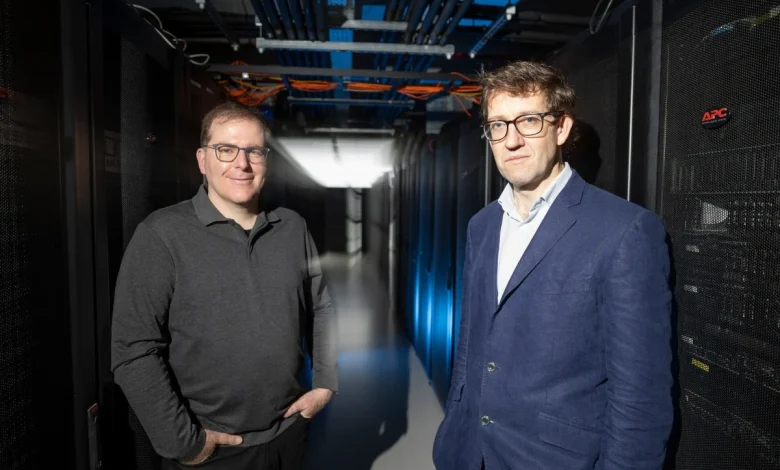UCD buys €724,000 Nvidia supercomputer for AI-led research boost

50-times the performance capability compared to the existing cluster at UCD, the project lead tells SiliconRepublic.com in an exclusive interview.
University College Dublin (UCD) is procuring a new nearly €724,000 Nvidia supercomputer to accelerate AI-powered research on the campus and allow students from across fields to access the high-end technology.
Called Advanced UCD Research in Artificial Intelligence (AURA), the supercomputer project – representing the single biggest investment in AI supercomputing by the university – is funded through the Higher Education Research Equipment Grant.
Nvidia’s new DGXB200 supercomputer comes equipped with eight Blackwell chips and delivers three times the training performance when compared to its previous generation, and, according to the AURA project lead Prof Aonghus Lawlor, performs 50-times faster than UCD’s existing high-performance compute cluster ‘SONIC’.
With the order now placed, AURA is expected to arrive on campus by early next year. In addition to the new supercomputer, UCD has also invested around €1.45m to upgrade its existing clusters over the past year.
According to the university, its existing stacks, together with AURA’s additional compute capacity makes UCD the most powerful Irish university campus in terms of AI and high-performance computing capacity.
Boosting research output
The need for AI compute has shot up in recent years, says project co-principal investigator Dr Brian Mac Namee, who is also the site director at the Insight Research Ireland Centre for Data Analytics.
And this demand comes alongside a “step change” in the technology’s capacity, he adds.
“AI techniques and models have become more effective – you can just do more with them. The breadth of application areas has grown massive,” Mac Namee explains.
AURA has been on the cards for a long time, he says. The project is set to support advanced research in a variety of fields, including in healthcare, cultural and political analysis, business, and weather and climate modelling, just to name a few.
SiliconRepublic.com spoke to a number of high-level researchers expected to access AURA for their work.
For example, Prof Gerardine Meaney, the director of the UCD Centre for Cultural Analytics, uses machine learning to analyse very large historical and cultural data sets. According to her, AI trained on large historical data sets has the potential to “reactivate associations, narratives [and] formations” rooted in periods of “othering”.
One of Meaney’s research projects investigates instances of historical gender bias where women’s cultural production was erased from history. She says that AI and machine learning can help analyse large data sets and help retrieve some of these voices.
While Dr Andrew Hines’ research uses AI for machine perception – visual and auditory. Hines is the director of graduate research at the School of Computer Science. The idea behind his work is to make machines see and listen like humans so consumer products such as Zoom calls and headphones work better.
“Things that would have taken a year on the kind of standard GPUs that we were using – you can do in days with this new supercomputer,” he says. According to Hines, this would increase the overall output coming out of research at the university.
Apart from higher-level research, graduate students at UCD will also get to use AURA. “I think that’s really important for Ireland is that our graduates are at the cutting edge of what’s going on. So, this kind of computation platform allows us to do that,” says Mac Namee.
Lawlor and Mac Namee say that thousands of students will get to use AURA over its lifetime. AURA will be available to “everyone” at UCD, Mac Namee adds.
Students can apply and train their models on the machine. Moreover, he says that experience running advanced models such as AURA will give students a competitive advantage while searching for work.
Don’t miss out on the knowledge you need to succeed. Sign up for the Daily Brief, Silicon Republic’s digest of need-to-know sci-tech news.





